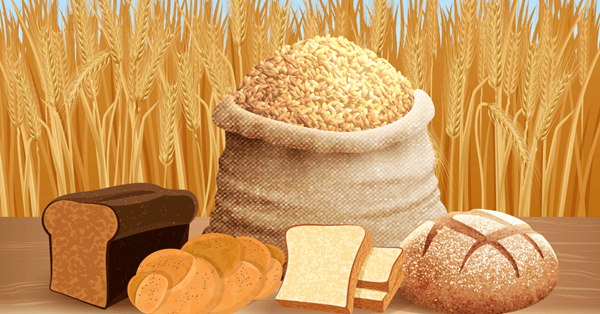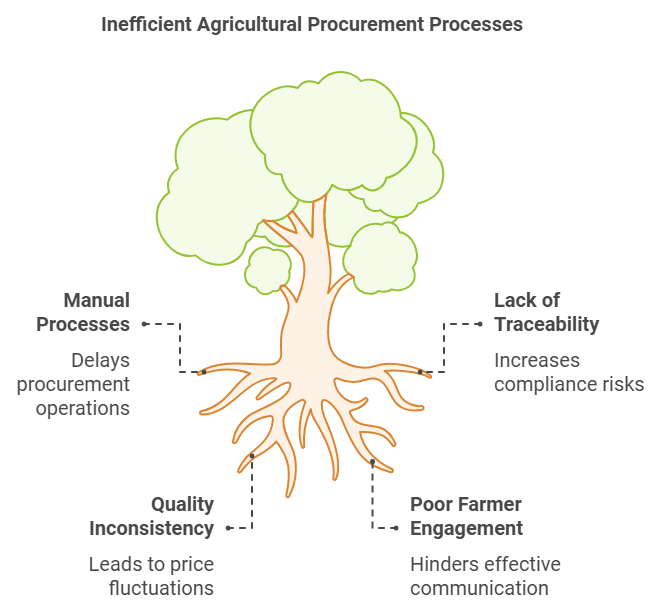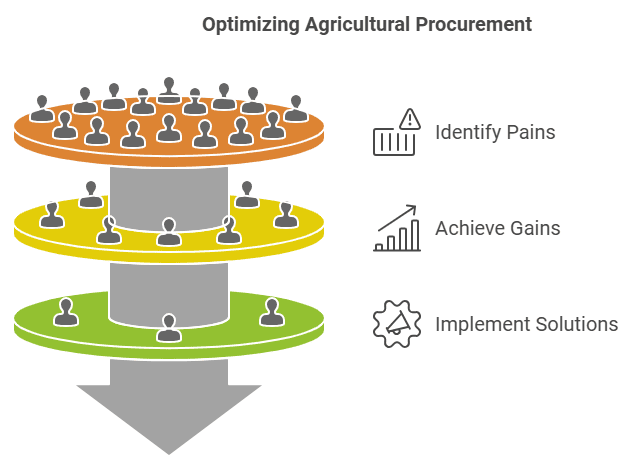Contact: +91 99725 24322 |
Menu
Menu
Quick summary: Explore the key challenges in agriculture procurement and how digital solutions can enhance efficiency, transparency, and trust in the supply chain.

Agricultural procurement faces complex challenges, from ensuring fair prices for farmers to battling inefficiencies in supply chains. Inconsistent weighing practices, delayed payments, or tampered records during procurement, such hurdles not only strain farmer livelihoods but compromise trust in the system.
Operators in the Agriculture sector encounter numerous difficulties in overseeing procurement processes that are intricate and varied. These challenges are intensified by the ongoing reliance of many companies on outdated tools and methods that are isolated, restrictive, confusing, and lacking transparency.
This calls for innovative, technology-driven solutions to drive transparency, efficiency, and fair trade. By addressing these pain points, the entire agricultural value chain can work toward a more equitable and reliable system. Digital platforms offer a transformative solution, bringing real-time traceability, robust data security, and seamless record management to procurement operations, empowering both farmers and procurement bodies to build a system rooted in transparency and accountability.
Key Takeaways
Agricultural procurement is the process of sourcing, buying, and managing the acquisition of agricultural products like crops, livestock, and raw materials for food production. It involves a series of activities, such as quality checks, weighing, transportation, storage, and payment processes. Effective agricultural procurement ensures fair compensation for farmers, reduces supply chain inefficiencies, and meets regulatory and safety standards. However, it can be challenging due to issues like fluctuating prices, inconsistent product quality, fragmented supply chains, and the need for traceability to ensure transparency and compliance with ethical sourcing practices.
Procurement management in agriculture focuses on the efficient coordination of sourcing activities, such as quality control, storage logistics, and payment processing, to meet market demand while minimizing costs and risks. By managing supplier relationships and leveraging data-driven solutions, it helps ensure transparent transactions, compliance with ethical and safety standards, and fair pricing for producers, ultimately reducing inefficiencies across the supply chain.
The ongoing dependence on obsolete procurement tools and methods leads to a series of issues and inefficiencies
Agricultural procurement is a complex landscape. Consider Priya, a procurement manager at an agri-business sourcing high-quality grains from rural India. Her goal? Ensure on-time supply, meet sustainability targets, and maintain traceability—all while managing rising costs and supplier complexity. The stakes are high: one missed deadline, and production slows. A slight dip in quality? Trust is lost.
The agricultural supply chain is complex and unpredictable. From weather fluctuations affecting yields to ever-changing regulatory requirements, procurement teams must constantly stay on their toes. This is the situation faced by countless procurement managers across the industry.

Priya’s experience isn’t unique; many procurement teams share common pain points:
The implications of these issues extend far beyond operational headaches. Let’s dive back into Priya’s story:
One month, a key supplier reported a significant drop in crop yield due to unexpected rains. Without sufficient alternative sources, Priya faced delays, which spiralled into customer complaints and lost revenue. Meanwhile, regulatory audits exposed gaps in supply chain traceability, risking fines and damaging the brand’s reputation.
This shows how operational hiccups quickly escalate into strategic challenges, from financial losses to damaged trust and compliance risks. It’s a stressful balancing act, and without the right systems, it can be nearly impossible to navigate effectively.
So, how can procurement teams like Priya’s overcome these obstacles and streamline their processes? Enter innovative solutions tailored to tackle each pain point:
Priya’s team adopted a digitized procurement solution that connected directly with their network of farmers. The new platform tracked every grain shipment’s origin, quality certifications, and movement through the supply chain. Data-driven insights predicted the impact of erratic rains on future yields, enabling Priya to secure reliable alternative sources well in advance.
This transformation didn’t just protect the company’s reputation; it built stronger relationships with farmers, improved operational efficiency, and enhanced transparency across the supply chain.
1. Increased Efficiency: Digital solutions automate routine tasks, reducing manual workload and allowing procurement teams to focus on strategic activities. This leads to faster processing times for orders and improved overall efficiency in procurement operations.
2. Improved Decision-Making: Access to real-time data empowers decision-makers with actionable insights that enhance forecasting accuracy and resource allocation. Companies can respond more effectively to market fluctuations and consumer demands.
3. Enhanced Supplier Relationships: By fostering transparency through digital solutions, companies can build stronger relationships with suppliers based on trust and collaboration. Improved communication channels lead to better alignment on goals and expectations.
4. Cost Savings : Optimized procurement processes reduce waste and minimize excess inventory costs. Additionally, leveraging data analytics helps identify cost-saving opportunities throughout the supply chain.
5. Sustainability Compliance: Digital solutions enable companies to track their sourcing practices more effectively, ensuring compliance with sustainability standards such as those outlined by the EUDR (European Union Deforestation Regulation). This not only mitigates risks but also enhances brand reputation among environmentally conscious consumers.

The TraceX farm management platform, which includes its robust procurement feature, empowers farmers and organizations through end-to-end digitization of agricultural processes. This platform supports seamless farm operations, from farmer verification and resource planning to produce grading and traceability using dynamic QR codes. By leveraging blockchain technology, it ensures tamper-proof record-keeping, efficient weighing integration, real-time market tracking, and transparent farmer communications. The result is a sustainable, optimized, and transparent farm-to-fork ecosystem that builds trust across the agricultural supply chain.
TraceX’s procurement feature, powered by blockchain, enhances agricultural supply chains with efficient, transparent, and secure processes. Key elements include
Agriculture procurement is a complex process, riddled with challenges like data manipulation risks, inefficiencies, and lack of transparency. However, embracing digital solutions such as blockchain, IoT, and AI can significantly improve the accuracy, speed, and fairness of transactions. By adopting these technologies, agribusinesses can streamline their operations, build trust with suppliers, and ensure sustainable practices. Overcoming these hurdles with digital tools ultimately fosters a more efficient, transparent, and reliable agricultural procurement system.
Key challenges include data manipulation risks, inefficient manual processes, delayed record management, and lack of transparency, all of which slow down procurement operations.
Digital solutions, such as blockchain for traceability, Bluetooth-enabled weighing systems, and real-time communication tools, streamline operations, reduce errors, and ensure fairness in transactions.
Transparency ensures that transactions are fair and credible, fostering trust between farmers and buyers. Digital tools help provide clear records, secure data, and real-time updates to all stakeholders.
